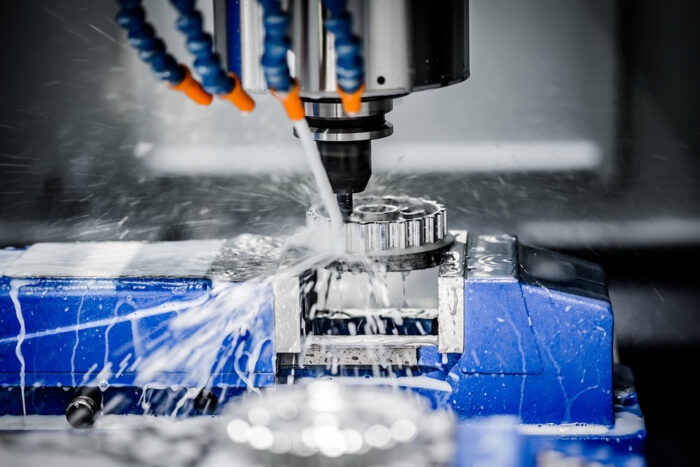Computer Numerical Control (CNC) machines are revolutionary tools in manufacturing and design, offering precision, efficiency, and versatility. These machines have transformed how we create everything from simple parts to complex products. As technology advances, the variety and capabilities of CNC machines expand, choosing the right machine more crucial and challenging. This guide aims to assist you in navigating the landscape of CNC machinery, ensuring you make an informed decision that aligns with your needs and objectives.
Understand Your Requirements
Understanding your requirements before selecting a CNC machine is pivotal. Consider the nature of your projects in more detail. Are you creating large-scale industrial parts or intricate jewelry? The material range — from soft plastics and wood to harder metals like steel or titanium — will directly influence the type of CNC machine you need. Also, precision is key. For instance, creating electronic parts requires much higher precision than rough-cut woodwork. Furthermore, the space in your workshop isn’t just about fitting the machine. You need to consider the operational space around it, storage for materials, and safety zones.
Exploring the World of Desktop CNC Mills
A desktop CNC mill is a gateway into the world of CNC machining, especially for those with space constraints or budget limitations. They are not just scaled-down versions of larger mills but are designed with the home user or small business in mind. These machines often come with user-friendly software and can handle various materials, albeit on a smaller scale. Their affordability also makes them an excellent choice for educational purposes, allowing students to learn about CNC machining without the high investment of larger machines.
The Versatility of CNC Mills
A CNC mill, stepping up from its desktop counterparts, offers a broader range of capabilities. They are the backbone of many manufacturing operations, capable of producing complex and precise components. The versatility of CNC mills lies in their various configurations — from 3-axis mills for basic operations to 5-axis machines for complex geometries. This adaptability opens doors to diverse applications like prototyping, mold making, and artistic sculpting. Furthermore, their ability to work with a vast array of materials makes them indispensable in the automotive, aerospace, and medical industries.

Considerations for Machine Size and Power
The size and power of a CNC machine are not just about physical dimensions and electrical consumption. Larger machines, capable of handling bigger projects, require a more robust infrastructure, including reinforced floors and larger electrical inputs. The power of a CNC machine also relates to its ability to cut through materials with precision and speed. Higher horsepower means quicker material removal, but it also means greater wear on tools and potentially higher operational costs.
Assessing Machine Precision and Speed
A CNC machine’s precision directly affects the final product’s quality. Machines with higher precision capabilities are essential for industries where even a fraction of a millimeter matters. Speed, while important for productivity, should be balanced against precision. Faster machines can increase output but may not always maintain the desired accuracy, especially for complex or intricate designs. This balance is crucial in aerospace and medical device manufacturing, where precision is non-negotiable.
Software Compatibility and Ease of Use
The software component of CNC machines is a critical aspect that dictates functionality and ease of use. Compatibility with popular CAD (Computer-Aided Design) and CAM (Computer-Aided Manufacturing) software allows seamless integration into existing workflows. User-friendly interfaces are essential for reducing the learning curve and improving efficiency. The software should also offer flexibility regarding design changes and adjustments, which is crucial for custom and prototype work.
Maintenance and Support
Regular maintenance is vital for keeping a CNC machine in optimal working condition. This includes routine checks and replacements of parts like cutting tools and filters. A machine with easily accessible parts and clear maintenance guidelines can save time and reduce the risk of prolonged downtimes. Manufacturer support is equally important. A good support system means access to expert advice, spare parts, and potentially training on machine operation and maintenance.
Cost-Effectiveness and Return on Investment
When evaluating cost-effectiveness, looking beyond the initial purchase price is important. Consider the total ownership cost, including maintenance, tooling, and operational costs. A more expensive machine may offer greater efficiency, durability, and lower operational costs, leading to a better return on investment over time. It’s also worth considering resale value; some brands and models hold their value better than others.
Sustainable Practices
Sustainability in CNC machining involves considering the environmental impact of the machine’s entire lifecycle. Energy-efficient models not only reduce your carbon footprint but can also reduce electricity costs. Additionally, machines constructed with sustainable materials or those that produce less waste contribute to a greener operation. Implementing sustainable practices can also be a selling point for your business, appealing to environmentally conscious customers.
Preparing for Future Expansion
Planning for future expansion is crucial. As your needs evolve, your CNC machine should be able to keep up. This might mean choosing a machine with capabilities beyond your current requirements. Look for machines with upgradable features, such as additional axes or compatibility with advanced software. This foresight ensures that your machine remains a valuable asset as your business or hobby grows, avoiding the need for a complete replacement.
Conclusion
Selecting the right CNC machine is a vital decision that can significantly impact your projects’ success and efficiency. By considering factors like size, power, precision, software compatibility, and cost-effectiveness, you can ensure that your investment pays off in the long run. Remember, the best CNC machine is not just the most advanced or expensive one; it’s the one that perfectly aligns with your specific needs and goals.
Find a Home-Based Business to Start-Up >>> Hundreds of Business Listings.















































